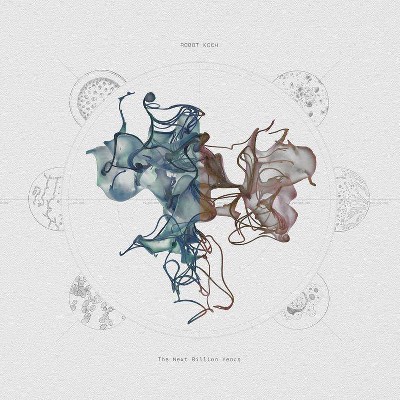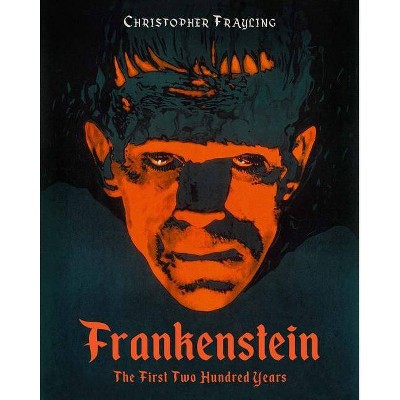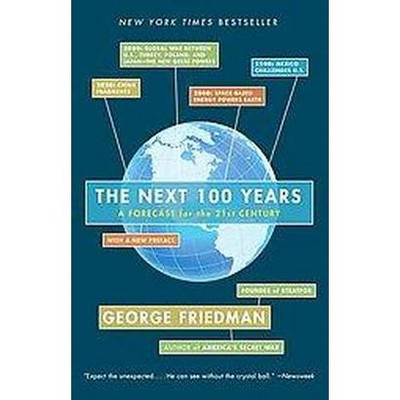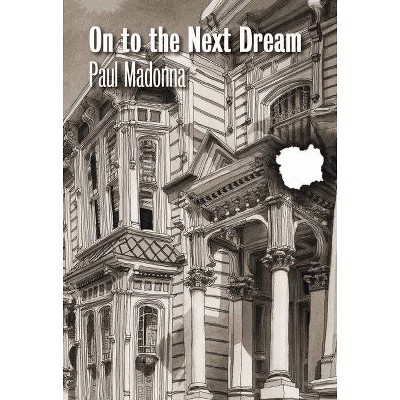The Next 500 Years - by Christopher E Mason (Hardcover)
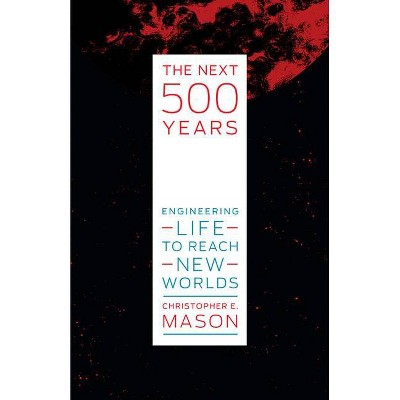
Similar Products
Products of same category from the store
AllProduct info
<p/><br></br><p><b> About the Book </b></p></br></br>"Driven by a vision of colonizing other planets, Mason reveals unique insights into how the human body is altered during long-duration spaceflight & how genetic engineering can protect cells in space"--<p/><br></br><p><b> Book Synopsis </b></p></br></br><b>An argument that we have a moral duty to explore other planets and solar systems--because human life on Earth has an expiration date.</b> <p/>Inevitably, life on Earth will come to an end, whether by climate disaster, cataclysmic war, or the death of the sun in a few billion years. To avoid extinction, we will have to find a new home planet, perhaps even a new solar system, to inhabit. In this provocative and fascinating book, Christopher Mason argues that we have a moral duty to do just that. As the only species aware that life on Earth has an expiration date, we have a responsibility to act as the shepherd of life-forms--not only for our species but for all species on which we depend and for those still to come (by accidental or designed evolution). Mason argues that the same capacity for ingenuity that has enabled us to build rockets and land on other planets can be applied to redesigning biology so that we can sustainably inhabit those planets. And he lays out a 500-year plan for undertaking the massively ambitious project of reengineering human genetics for life on other worlds. <br/><br/> As they are today, our frail human bodies could never survive travel to another habitable planet. Mason describes the toll that long-term space travel took on astronaut Scott Kelly, who returned from a year on the International Space Station with changes to his blood, bones, and genes. Mason proposes a ten-phase, 500-year program that would engineer the genome so that humans can tolerate the extreme environments of outer space--with the ultimate goal of achieving human settlement of new solar systems. He lays out a roadmap of which solar systems to visit first, and merges biotechnology, philosophy, and genetics to offer an unparalleled vision of the universe to come.<p/><br></br><p><b> Review Quotes </b></p></br></br><br>"Readers looking for science writing that sees bold possibilities in the future will be enthralled." <br><b>- Publishers Weekly <p/></b>"[This] book arrives at a fascinating moment in the history of technology, when we may, after all, be able to avert previously unavoidable catastrophes . . . Mason's book is a genuine, timely and engaging addition to a 1000-year-old Western tradition, grounded in religious expectations and a quest for transcendence and salvation. Visionaries from Isaac Newton to Joseph Priestley to space pioneer Konstantin Tsiolkovsky have all expounded on the tenets that underpin Mason's account: the apocalypse is imminent, but, by increasing human knowledge, we may recover the paradise we enjoyed before the flood . . . Mason puts a new layer of flesh on what have, so far, been some ardent but very sketchy dreams." <b><br><b>-</b> <i><b>New Scientist</b></i> <br></b><br>In his new book, <i>The Next 500 Years</i>, geneticist Christopher Mason argues, 'It is no longer a question of 'if' we can engineer life--only 'how' and that 'Engineering is humanity's innate duty, needed to ensure the survival of life.'<br><b>-<i>Science <p/></i></b>"What sets Mason's ideas apart . . . is that he realizes that human bodies aren't well suited for life away from Earth, what with the radiation, toxic gases and so on. His programme for expansion comes with a detailed blueprint for the genetic improvements we will need to make to ourselves to boost our resilience off-world. Mason is well placed to write such a plan."<b> <br>- Joshua Howgego<i>, New Scientist<br> </i></b> <br> "Provocative"<b><i> <br>- Bloomberg News<br> </i></b> <i><br> </i>"Mason is serious. His new book, <i>T<i>he Next 500 Years</i>, </i>maps out in detail how we'll do it." <b><i> <br><b><i>-</i></b>BBC Science Focus <p/></i></b><br><p/><br></br><p><b> About the Author </b></p></br></br>Christopher E. Mason is a geneticist and computational biologist who has been a Principal Investigator and Co-investigator of seven NASA missions and projects. He is Professor at Weill Cornell Medicine, with affiliate appointments at the Meyer Cancer Center, Memorial Sloan Kettering Cancer Center, the Information Society Project (ISP) at Yale Law School, and the Consortium for Space Genetics at Harvard Medical School.
Price History
Price Archive shows prices from various stores, lets you see history and find the cheapest. There is no actual sale on the website. For all support, inquiry and suggestion messagescommunication@pricearchive.us

